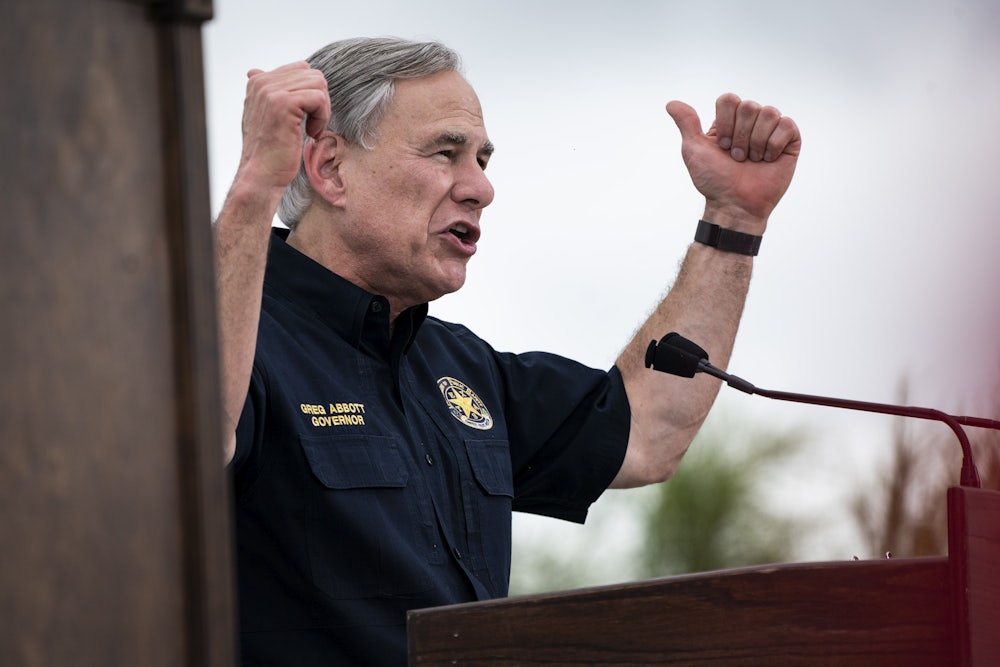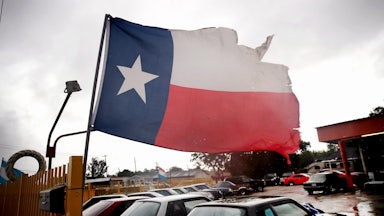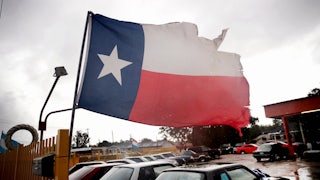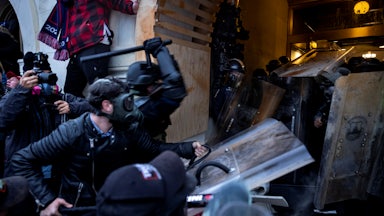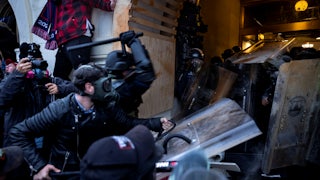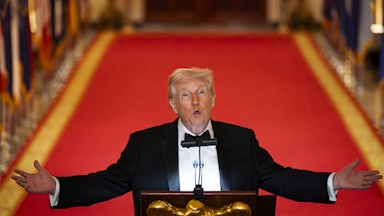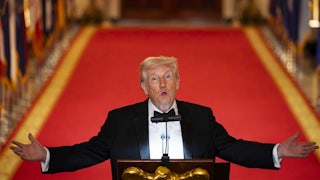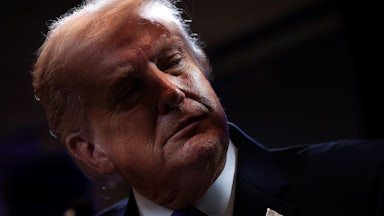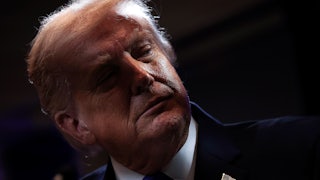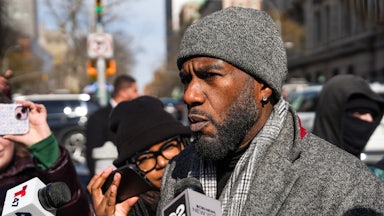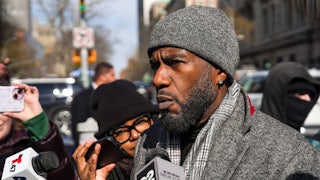In the United States, we’ve all become so inured to our federal system of government, with its individual state constitutions and lack of a uniformed national armed law enforcement authority, that it’s easy to forget we’re something of an anomaly. The Western hemisphere features only two other federated states—Mexico and Brazil—and they have comparatively much more robust national governments. The U.S. model is dinstinctive, functioning as a singular actor abroad but taking a form closer to the European Union closer to home. Nationally, there is a central legal framework in place and overarching policy that shapes our lives in common, but there are vastly different laws between states, helmed by powerful local executives in the form of governors.
In theory, this structure provides the best of both worlds—there’s a strong central government that can set broad monetary policy, provide military protection, and project global strength, while state governments can respond to ground-level needs, specialize in and cultivate particular industries, and generally be more responsive to local citizenry, among other things.
Sometimes the model works, and federal and state governments can use their respective authorities collaboratively and in furtherance of some public good. National Guards, for instance, get deployed all the time to respond to natural disasters. Recently, states have set up methodologies in tandem with the federal government to respond to the interconnected crises of the coronavirus pandemic; their own rent relief initiatives, their own eviction moratoriums, and their own testing and tracing programs.
Other times, you get something like Texas Governor Greg Abbott’s Operation Lone Star. Abbott’s brain child is not so much a competently constructed policy to further some material good as it is an exercise in political showboating, intended to mime concern and fearmonger about President Joe Biden’s border policies by deploying state law enforcement officers and troops from the National and State Guards. It has been a disaster in almost every respect.
Beyond being largely pointless, given Biden’s broad embrace of Trump-era border policies, the mission has failed along every operationally and moral line; as reported initially by The Army Times, a wave of soldier suicides and accidental deaths is among its rotted fruits. Recently, a Texas state judge ruled that the entire mission was an unconstitutional violation of the Supremacy Clause, in that it is an explicit attempt to usurp what was clearly a federal authority and prerogative.
But in a world where the Republican Party has coalesced around the idea that the January 6 riots were a form of “legitimate political discourse,” there are sinister and longer-term undertones that extend well beyond this one ill-conceived mission’s bumbling execution. Part of the reason that the judge so conclusively struck down the state government’s arguments is that neither Abbott nor Texas’s broader governing apparatus ever made an even cursory attempt to obscure the reality that this operation was intended essentially to supplant and, to an extent, defy the federal government’s authority. “Because the federal government is failing to act, to respond to these dangers, Texas is stepping up to secure the border and keep our communities safe,” Abbott said last April.
It sounds very much like Abbott is setting himself up to continue drawing on armed state power to stage muscular showdowns with the feds, using the pretext that he’s safeguarding some sacred American principle or acting in some arena in which the feds are failing. It’s not hard to see where this is going; immigration is a bit of low-hanging fruit here, in that it is an area of policy that most Americans fundamentally don’t grasp, and where the injured parties possess almost no power and limited rights under domestic law. It’s an emotional and electorally potent issue, but it’s not ultimately the animating objective of the contemporary GOP. Rather, its aims are focused on the electoral system itself, which the highest echelons of the party have been trying to discredit, hamstring, and ultimately dismantle.
What started as a relative trickle of attempted disenfranchisement via onerous voter ID requirements, gerrymandering, and the closure of poll sites has morphed into a full-on disdain for electoral politics, and the Operation Lone Star model of substantial state power, in this light, begins looking less like a way for local officials to provide more responsive representation and more like a way for them to start yanking out the threads that hold the whole thing together.
It is inherently hard to define what makes a particular exercise of state authority a problem versus a boon, as some of it lies in the eye of the beholder, but one way to divine the truth is to go beyond the stated rationales of the state and ask a fundamental question: What problem is this policy intending to solve? In the case of widespread coronavirus testing, for example, there’s a clear and present public health danger, backed by plenty of evidence, to which state officials are responding. Ditto in the aftermath of wildfire or a hurricane.
In the case of Lone Star, the rationale collapses under the most cursory scrutiny. There is no observable or legitimate reason to engage in these armed border deployments, so the real reason must be different from their stated purpose. In answering the question of what this reason is—a political stunt designed to damage the standing of the current Democratic president and bolster the image of the governor—we also address the matter of whether it’s a legitimate use of Abbott’s extensive powers. It is not. If a governor were to set in motion a similar deployment around voting sites, we could apply the same rationale. What is the real purpose here?
The trouble with all the mania over false claims of fraudulent ballots and stolen elections is that it’s in essence a prerequisite and justification for, well, something. The rationalizations would run the gamut—foreign actors are attempting to interfere with the running of elections (which is true, but a situation hardly helped by state law enforcement posting up around poll sites or demanding a hand in the process); millions of noncitizens or dead voters are voting illegally (easily disproved); mail-in ballots are coming from out of state (a claim that doesn’t stand up to the most minimal examination no matter how many times it’s deployed).
Still, we would know the real reasons. Though it may be uncomfortable and disturbing to explicitly acknowledge what these might be, we already know one important thing: There are, right now, Republican state executives ready and willing to actively subvert the electoral process.
A beta version of the Operation Lone Star reality is already being tested in states like Florida, where Governor Ron DeSantis announced that he would seek to create a special state agency to police elections, leading many observers to raise a red flag over the potential for misuse. States are, ultimately, in charge of running their own elections, but what is at issue here isn’t how to best implement a fair process but how to disrupt and capsize federal elections. Lone Star is both a trial run and a warning shot. The Humvees might be headed to the polling sites next.
